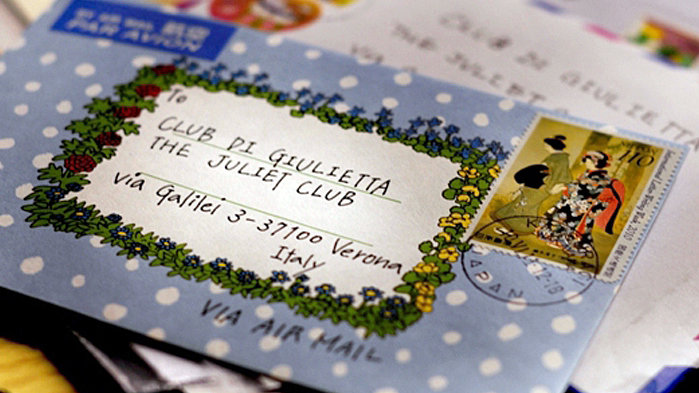
How to Say “I Love You” in Different Languages – Word Nerd Series
Since Valentine’s Day is fast approaching here in the States, today on Word Nerd we’re going to dive into the words for love in different languages.
Words for Love in Ancient Greek
The ancient Greeks had four words for love, eros, agape, philia, and storgé. Philia is the word for the sort of love one shares with one’s friends, but also a strong fondness for certain activities. Its root is the suffix –phil– which specifies an attraction or affinity toward something. You’ll recognize it from words such as hemophilia, which literally means “an affinity toward bleeding profusely.”
Storgé is specifically the sort of instinctual affection that is shared between family members, or between a person and their pet. Agape is more of a selfless and unconditional, spiritual love.
And eros is passionate, carnal romantic love. Eros is also the name of the Greek god of love, whose Roman counterpart is called Cupid.

Words for Love Around the World
The equivalent word for eros in the Hindu and Buddhist tradition is kama, which you’ll recognize from the title of the Kamasutra, an ancient Sanskrit text on sexuality, eroticism, and emotional fulfillment.
In Arabic the word is ishq, and in some Islamic traditions, it was thought to be the feeling which inspired creation itself. Arabic has many other words for various types of love, including habb, which you’ll recognize from the words habib and habibi, terms of endearment for a man or a woman respectively.
The Hebrew word חֶסֶד or chesed, is used to speak of love or kindness from or towards God or between people. It’s also one of the 10 emanations of the tree of life in the Kabbalistic tradition.
In Romanian, the word dragoste is used and it describes both familial love, romantic love, affection, and endearment.
In Czech, milovat is used, from the root word mily, meaning “kind or dear,” and the suffix –ovat which creates verbs out of nouns or adjectives.
In Swahili, the word upendo is used, which is also a common name for boy children.
Love in the Pacific Islands
In the Māori language, there is the word aroha, which means “to have empathy for, to feel compassion for, to love or feel concern for.” The phrase murimuri aroha is an even deeper expression of that feeling or action of yearning, and includes the yearning one feels when one is in grief. The word whakaipo means, “to cherish, woo or treat with affection,” and one would probably whakaipo one’s taupuhi, or “beloved.”
In Hawaii, people use the word aloha as a greeting, but at the heart of that greeting is a deeper feeling of peaceful, loving friendship toward other people and toward and from the natural world.
In the Tamil language of Sri Lanka, there are over 40 nuanced words for love, that include words for unreciprocated love, delusion while in love, and even a specific word for the action of showing your love for someone by holding them in your arms.
History of Love in English

We could certainly use some of these more descriptive words in the English language! We only have one word for love; from the proto-indo european root leubh– which meant “to care, desire.” We have absorbed some words from other languages to expand upon that feeling for example, amorous, from Old French amoros, from Latin amor and passion, from Latin passio, meaning “to suffer.”
In China, the symbols for “I love you,” are 我爱你” (wǒ ài nǐ), but because the sentiment behind these words is so strong, they are not often used or said aloud. People tend to perform actions for each other to show their affection instead. Because the symbols for “I love you” and the symbols for the number 520 sound very similar when spoken, there is a newer custom amongst younger people to text each other these numbers as a code for terms of affection.
Nordic Love Language
In many of the Nordic languages, the word for love is some variant of the word elske, most often verb form. This is reserved for only the most extreme of feelings, so generally, people use the terms jeg liker deg, which means, “I like you,” or, jeg er glad i deg, which means “I’m glad of you,” or “you make me happy.” The word kjære means “beloved” and in Norwegian, there is just one word for boyfriend or girlfriend, which is kjæreste.
I hope this exploration was an education in the various expressions of love in many of the beautiful languages of our world. Explore more ways to say I Love You around the world, along with some fascinating Valentine’s facts and trivia!

Speak Your Love’s Language
What’s the best reason to learn a language? For love, of course!
Give us 30 minutes a day and we’ll have you speaking your new language in no time. That’s all it takes for you to confidently say “I love you,” or “je t’aime” or “te amo” in the language of your choice, and sweep them off their feet. Learn while on the go and surprise your loved one with your new language.
Start Your Free Trial Week of any Pimsleur Language Program today!

No Comments for "Words for Love Around the World – The Linguistics of Love"